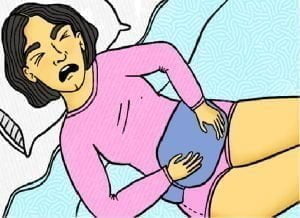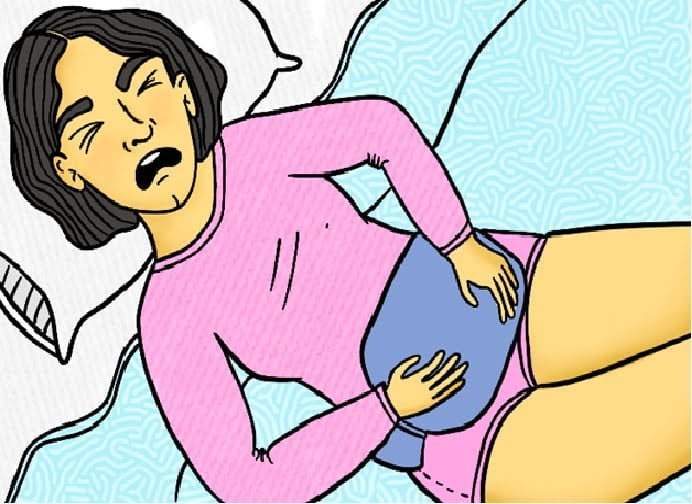ENDOMETRIOSIS: WHAT YOU SHOULD KNOW
Source: International Planned Parenthood Federation.
Introduction: While it can be difficult to identify endometriosis, many people around the world
suffer the effects of it.

Here we explain to you the causes, symptoms, impact, and diagnosis and
treatment methods.
Definition: Endometriosis (sometimes shortened to “endo”) is a condition where endometrial tissue
that is usually found in the uterus grows in other parts of the pelvis, such as the ovaries and fallopian
tubes. Many people around the world suffer from the effects of endometriosis, yet it can be difficult
to identify. Here we explain the causes, symptoms, impact, and diagnosis and treatment methods.
Symptoms and causes: The symptoms of endometriosis vary greatly, as does the intensity of them,
which means that some people do not even know they have it. However, these are the main
symptoms you should look out for:
• strong period pains
• pain in your lower tummy or back, which usually worsens during your period
• pain during or after sex
• pain when going to the toilet during your period
• nausea, constipation, or diarrhea during your period
• blood in your urine during your period
• irregular periods, and/or heavy periods which soak through several pads/tampons etc, and
perhaps even through your clothes
• difficulty getting pregnant
The causes of endometriosis are unclear. It could be genetic, or a problem with the immune system.
It could also be linked to the menstrual cycle, or something else entirely – or a combination of all of
these. At this stage, no one fully understands why endometriosis happens, which unfortunately may
contribute to the problem of identifying it in people.
Impact: Endometriosis can affect anyone with a uterus who has periods, and it can last for years. A
main complication is impaired fertility, and approximately a third to a half of women with
endometriosis have difficulty getting pregnant. Endometriosis can be physically very painful for
some people, to the point that they are unable to carry out their usual day-to-day activities. As a
result, they might require time off from work or school to rest and recuperate. It can also lead to
mental health problems, and some people consequently develop depression.
Diagnosis: Many people report that their concerns are sometimes dismissed as ‘bad period pains’,
rather than the specific condition of endometriosis. This is not right, and you deserve for your
experience to be taken seriously so you can get the medical care you need. If you think you have
endometriosis, make a diary of your symptoms (physical and emotional), noting when they happen
and to what extent. Then make an appointment to see a health practitioner, and take this diary with
you to help give them a better picture of your experience.
As well as assessing your diary, the health practitioner may perform tests on your tummy or vagina,
or an ultrasound, to diagnose you. It can be difficult to identify endometriosis, as the only way to be
completely sure you have it is to undergo a minimal invasive surgical procedure called a laparoscopy.
This is where a tube is passed through a small cut in your tummy, so that a medical professional can
see directly if and where excess tissue is forming. The laparoscopy is usually the final examination
they will suggest performing, and it’s important to note that there are treatment methods that can
be explored without or before having this procedure, which are outlined below.
Treatment: While there is no cure for endometriosis, there are treatment options to help manage
the symptoms including: physical therapy, specifically for your pelvic floor painkillers (such as
ibuprofen) certain hormonal contraceptives (such as the Pill, and the IUS) surgery to cut away
endometrial tissue (if you are living with infertility, this may also help increase your fertility) a
hysterectomy (to remove part or all of the womb) – this is only for people for whom fertility is not a
consideration.
Note that, your healthcare provider will be able to discuss all these options with you in full.
It is worth bearing in mind that in some cases the symptoms of endometriosis might improve on
their own. But in the meantime, you do not need to suffer in silence – make an appointment with
your healthcare provider to discuss endometriosis if you think you may have it.
We are on standby for you here at PPAG. Visit us now or call 0800202010.



